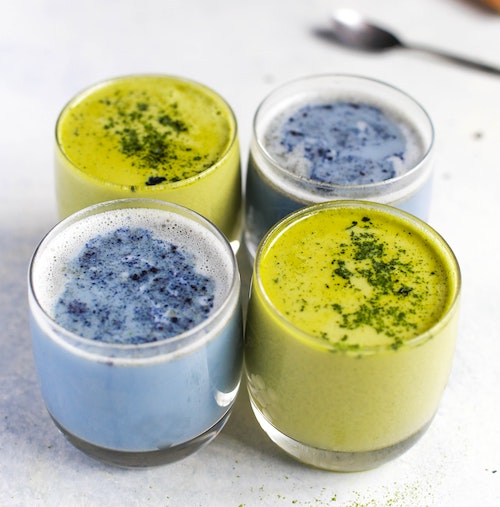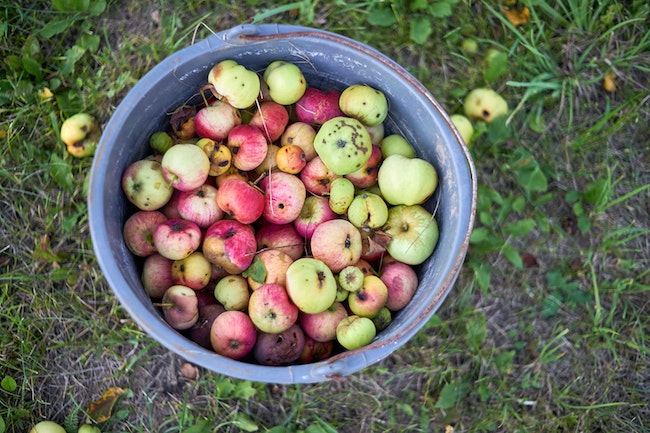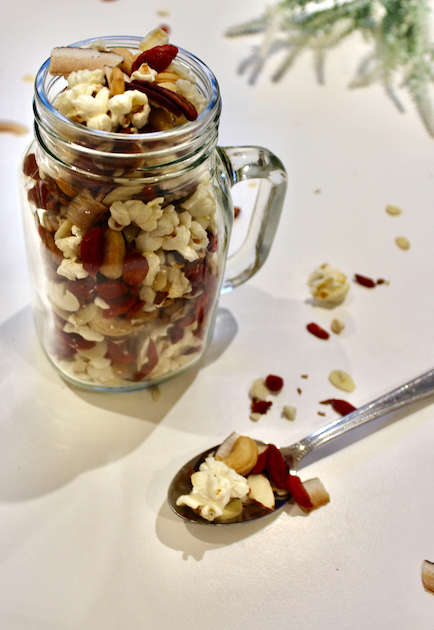I personally believe that one can never get enough self-love and care. Often, people understandably confuse self-love or self-care with selfishness, when there is certainly a difference between the two.
When looked at from a wider perspective, one can clearly see that selfish self-indulgence doesn’t benefit anyone, including ourselves, and especially not over time. It is also addictive.
In contrast, genuine self-care is not an addictive act, nor is it harmful to ourselves or others in any way. On the contrary, consistent self-care helps us to altruistically maintain the capacity to truly help others and continuously treat them well, while also truly improving aspects of ourselves (e.g., our state of mind, our feelings towards others, etc.) in the process.
Table of Contents
- Meditation, yoga, or other mindfulness practises:
- Journaling:
- Physically spending time in nature, looking at nature imagery (through pictures or a window), OR listening to nature sounds:
- Exercise:
- Practising gratitude:
- Affirmations:
- Read at least 1 page from a book that inspires you in some way every day:
- Digital detox:
- Listing your recent achievements and other things you’re proud of (no matter how small they may be):
- Some form of expressive art:
- Psychotherapy, counselling, art therapy, or expressive arts therapy:
The very best parents, friends, and caregivers that I have ever known all happen to be those who perform the most self-care, namely engaging in practises that mostly benefit the mind, emotions, and spirit.
The reason for this is clearly illustrated in Arianna Huffington’s quote:
“If you take care of your mind, you take care of the world.”
~Arianna Huffington
This explains the simple fact that when we’re unhappy, others are unhappy.
For example, have you ever noticed yourself feeling sad after witnessing the suffering of a character on T.V., even if it’s completely fictional, as silly as that might sound?
Or, have you ever noticed yourself feeling depressed or drained after you hear about something terrible happening to someone on the news, and you carry this feeling around with you for quite some time after that? This negative mood might even impact our perception of others, or the world at large, and how we treat people for a while after that, even if this “only” manifests as an inability to be present around them.
Our behavior, and even our internal thoughts, attitudes, and emotions then negatively impact the mind and behavior of those that we interact with, as they also sense some degree of suffering within us, who then influence the behaviors and internal states of those they interact with, who then pass this emotional domino effect onto even more people, and so on.
This continuous pattern of passing on one’s emotions (and perhaps behavior) continues itself, until it either gradually dies down, or someone who possesses more conscious awareness, mindful discipline, resilience, and self-love—perhaps due to regular self-care—breaks the cycle by instead passing on positive energy, which can be done through something as simple as smiling or holding the door for someone.
This cycle demonstrates the importance, power, and value of self-care, which many people remain completely oblivious to, perhaps because they have been conditioned to believe that self-care is selfish and frivolous. Or, they might believe that they don’t deserve to care for themselves or are unworthy of it, because, again, they have been conditioned to believe that it is a selfish, frivolous indulgence, which couldn’t be further from the truth.
The undeniable fact of the matter is that our emotions—whether they’re good or bad—are contagious. We don’t enjoy seeing anyone suffer (unless someone is very psychologically ill, they might), including ourselves, of course. This is especially the case as we become more conscious of our own suffering and the suffering of others, as we develop greater compassion and love for ourselves and others, causing us to relate more deeply to the pain of all beings.

In this way, we share the wellbeing of the collective, so rather than being viewed as a frivolous, selfish indulgence, self-care should be viewed as necessary and helpful, for both ourselves and for all of humanity.
I think it is absolutely essential to practise self-care, and on a regular basis, too, if we wish to remain healthy emotionally, mentally, physically, and spiritually.
We all need to take proper care of ourselves in order to stay healthy in multiple ways, feel our best, be less affected by environmental stressors, remain kind and helpful to others, and to feel genuine happiness, so there is no shame in devoting a specific amount of time each day to self-care.
While most people seem to think that our happiness has everything to do with how favourable our external circumstances are, it actually has everything to do with the quality of our thoughts.
It doesn’t matter how great our life seems to be externally—if we don’t work on improving our mind, then we won’t be able to truly appreciate anything. At the very least, everything will bore us very quickly, no matter how “perfect” our life might appear to be to the outside world.
Since it is impossible to constantly avoid unpleasant external situations, as they are not always within our control, the Buddha has famously said, “It is foolish to guard against misfortunes from the external world and leave the inner mind uncontrolled.”
After all, our entire experience of life gets filtered through the mind, and our mind is the only aspect of life that is completely within our control.

Additionally, we need to be in an optimal state internally to be able to see situations clearly for what they are, without allowing conditioning and our own biases and preconceptions colour our view of the situation at hand. We will also be better equipped to help others from this higher perspective of non-judgemental, understanding, compassionate, and loving openness.
For all these reasons, I believe it would be ideal for most people to try to work some form of self-care into their schedule on a daily basis. If it’s not possible to do some form of self-care every day, then even doing it on a weekly basis is better than nothing and truly does make a difference.
However, there are so many creative ways to work different forms of self-care into our routine on a daily basis, making it very possible for us to be able to do it on a regular basis.
For example, if our work isn’t too far from our home, we can try walking or biking to work. Or if we commute via public transit, perhaps we can devote the time we commute to a form of self-care, such as journaling. And waiting in line for something can be utilized as an opportunity to practise mindfulness.
In fact, I firmly believe we can potentially practise mindfulness during any activity, anytime or anywhere. I also believe that if we look hard and honestly enough, we can find plenty of gaps (like the ones I just mentioned above—e.g., during commutes) in our schedule that can potentially be used for such purposes.
Below is a list of the most effective—yet surprisingly financially accessible—forms of self-care that exist to my knowledge, as they all hold the tremendous ability to help one physically, mentally, spiritually, and emotionally.
Meditation, yoga, or other mindfulness practises:

As I’m sure many of you know, there are countless reasons why you should meditate, as it has been shown to greatly improve mental health, mood, self-discipline, self-awareness, the digestive system, lowers blood pressure, reduces fears, and alleviates insomnia, just to name a few.
In fact, it might even be the most potentially advantageous self-care practise that exists because it seems to hold the potential ability to help you in every possible way.
However, many of us are less inclined to turn to meditation when we are in need of it the most because of the physical nature of the reality we live in. In a world where only tangible things seem to be real, it can feel as though we aren’t really doing anything for ourselves when we meditate, as it is not a physical form of self-care.
For example, pouring ourselves a drink or two to “calm our nerves” in the moment might feel more proactive than the thought of meditating, but it’s definitely not the best long-term solution to easing away our stress.
When things go wrong or we’re simply unhappy, we often feel obligated to do something active, physical, and concrete to correct our situation. Since meditation is not something that we think of when we hear those words, the thought of meditating might sound very unproductive, silly, or even pretentious to some.
The truth is, most of the problem lies in the suffering derived from the problem, and less so from the problem itself. If our problems didn’t cause us any suffering, would they really be considered problems?

Suffering itself is completely internal, so it should come as no surprise that one of the best ways to overcome it is through a method that is also almost entirely internal—meditation. While meditating will not fix the problem that exists in the external world, internally, it can do wonders to work through and reduce your pain, allowing you to become better equipped to handle problems externally, and with greater resilience, too.
If you do not know how to meditate yourself, there may be meditation classes offered in your area. There’s also plenty of meditation apps available, many of which are free (but may also offer a premium version).
My personal favourite app to use is Insight Timer, because it has thousands of different kinds of meditations, all of which are organized into different categories, including: guided meditations, sleep meditations, music meditations, meditations for anxiety, etc., and it is FREE (but also offers a paid, premium version with additional features, which I will get to in a moment).
Additionally, it has a search engine function, so you can find the exact kind of meditation you want, depending on your mood.
These meditations are rated and reviewed by participants who have tried them. These ratings are clearly visible to anyone, so you can clearly see from a distance how much others like it, if it’s what you’re looking for, and if it is even worth your time.
In the premium version, you are able to sign up for meditation courses and can download as many meditations as you want, allowing you to listen to them offline (without an internet connection), at any time.
Journaling:
I cannot stress enough how beneficial journaling has been for me. It has given me such a greater level of clarity and understanding of myself, as well as the world at large, which has enabled me to grow tremendously in so many ways. Additionally, it can serve as a powerful emotional outlet that simultaneously allows you to express yourself creatively in a completely safe and non-judgemental place.

In this way, a journal can almost act as a wonderful friend that is always there for you when you need it the most, and relentlessly accepts you unconditionally for who you truly are. The truth is, this wonderful friend is actually you—your highest, most loving self, which you can potentially become well-acquainted with through this process.
Understandably, not everyone is very comfortable with exposing their vulnerability. If you’re one of these people, remember that you can always write as little or as much as you want—you are the boss, and no one ever needs to see it. You can always add to it later or even destroy it right after, if you wish.
Physically spending time in nature, looking at nature imagery (through pictures or a window), OR listening to nature sounds:
One of the many things I learned about back when I was a university student that really stuck with me were the incredible psychological and physiological benefits associated with spending time in nature, or simply feeling as though you are in nature.
One remarkable statistic that blew my mind is the following, reported by Dr. Joe Dispenza:
“Listening to two hours of nature sounds a day significantly reduces stress hormones up to 800% and activates 500-600 DNA segments known to be responsible for healing and repairing the body.”
~Dr. Joe Dispenza

In fact, even just looking at pictures of nature can be highly advantageous, as a Swedish study finds. Specifically, it showed that “heart surgery patients in intensive care units could reduce their anxiety and need for pain medication by looking at pictures depicting trees and water.”
Similarly, a study examining the effects that nature views from a hospital window have on patients who just had abdominal surgery found that those with a view of trees recovered faster and with less complications and pain medication than those faced with a view of a brick wall.
These are incredibly useful facts to be aware of, as they show that you don’t even necessarily need to be outdoors to enjoy the powerful benefits of nature. They demonstrate that the benefits of nature are so potent that even just simulating or viewing small aspects of it in some form can significantly help you in a number of different ways.
Of course, if you can spend time in nature directly – by actually going outside – then that’s even better!
Unsurprisingly, spending time in nature has also been linked to an improved mood and mindset, an increased ability to pay attention, inhibit impulses, and delay gratification, as well as a lowered rate of behavioral disorders and mental illnesses in general.
Exercise:

Besides its obvious physical benefits, exercise also improves mental clarity, memory, and brain function in general, boosts mood and energy, enhances sleep quality, nourishes your skin, and decreases stress. You can workout outside to combine the benefits of exercise with those associated with spending time in nature to get the most out of your time.
Practising gratitude:
This can be done mentally, verbally, or via journaling, and can instantly put you in a good mood. For this reason, I like to practise gratitude in the morning (along with my other morning rituals), to put me in a good mental space right away before I start my day.
One very simple way to do this is by verbally stating what you have been feeling grateful for lately to someone you live with over breakfast, or as you’re preparing it. When doing this, try to muster up as much reverence as you possibly can for at least one thing (quality over quantity is key), in order to benefit as much as possible from this exercise. In addition, spending some time feeling deep appreciation for every single person you know who will serve you in some way that day is also not a bad idea.

This practise has made me feel appreciative of things that I would initially take for granted or hardly even notice before. I even feel appreciative of things that don’t even seem to be too good at first, as I am reminded that it could be so much worse. I have also noticed myself feeling gratitude for very small, common acts of decent behavior, which I seemingly used to just expect from others before.
For example, when the pandemic was much worse and I had to be out in public for essential reasons, I noticed myself feeling very grateful anytime someone would keep a generously safe distance from me and would follow health and safety protocols. Originally, I seemed to just expect others to adhere to safety protocols out of common courtesy, and would feel nothing when people would do so, even though I really wanted people to follow them in order to protect others, as well as myself.
My attitude about this and so many other unrelated things have since changed due to my daily gratitude practise, causing me to have less expectations (no matter how reasonable they may seem) about how people “should” behave, which has in turn allowed me to feel less affected by the undesirable actions of others. My initial entitlement about having my seemingly reasonable expectations be met more often became replaced with an unconditional acceptance of others, which manifested as a lack of expectations. But when an ideal action does happen, I often experience a strong and expansive feeling of gratitude, rather than the “nothingness” I would “feel” before I started doing this practise.
After doing this for a while, you might just find that your mind is noticeably stronger and naturally complains much less than it did before. As with myself, even the smallest things may make you feel genuinely happy.
You may also find that doing this will become a habit that becomes effortlessly interwoven into your daily life, and greatly contributes to the baseline amount of joy that you experience naturally throughout the day.
This practise definitely does not take too long, and can be done anywhere and at any time, so it’s definitely worth trying out! Again, the more gratitude you can muster up, the more powerful this activity will be for you.
Affirmations:
The concept of reciting affirmations to oneself can definitely feel silly at first. However, I personally think affirmations are great, not just for the sake of manifesting external goals, but also for manifesting internal goals, like improving your state of mind and developing desirable skills, qualities, and traits.
I commit a considerable amount of time to doing affirmations each day, which I wouldn’t do if I didn’t thoroughly believe in their manifestation potential myself.
The entire reason I believe in it so much is because I have personally witnessed the positive differences that they have made in my own life.
For example, here are a couple of affirmations that have greatly helped me to ward off feelings of overwhelm, anxiety, lethargy, and apathy that sometimes plague me from completing the work that I need to do:
- When I really tune into my inner nature, I can see that I already possess all the motivation, energy, determination, grit, skills, and other qualities that I need to succeed.
- I won’t waste so much time thinking about doing things, and will instead just do them.
Likewise, the mantras I use to inspire and encourage me to maintain healthy eating habits are as follows:
- I can and will eat healthy and take care of my body on most days of my life. Taking care of myself helps me to be the best version of myself that I can possibly be. I truly want the best for myself and deserve to glow with radiant health, rejuvenation, wellbeing, and self-love. I deeply value the privilege I have to take care of myself and eat healthy, nourishing foods, which I will gladly honour by consuming such foods the majority of the time.
As you say your affirmations, try to really mean them with a strong sense of conviction, rather than just passively saying them without really absorbing what you’re saying. Ideally, you want to try to say them with as much emotion as you can to benefit from them as much as possible. You can even repeat each one a few times, if needed.
My only other suggestion is to try to use affirmations that are at least slightly believable and realistic, otherwise they won’t have the impact on you that they should, and might not even work. This can be done by adjusting the wording of your affirmations until they sound believable by using more general, vague language and qualifiers—such as by replacing the word “always” with “often.”
Read at least 1 page from a book that inspires you in some way every day:

Even reading just a little each day to inspire you—like reading only 1 page or a passage of an inspiring book—can be a great way to keep your spirits up in little time, while exercising your mind and allowing you to potentially learn something useful in the process.
Every morning after I do my affirmations, I read a passage (1 page) from a book called Eat Pretty Every Day: 365 Daily Inspirations for nourishing Beauty, Inside and Out (Amazon) by Jolene Hart, CHC, AADP (shown below).
This book offers inspiring information and suggestions on how to achieve your best physical, mental, emotional, and spiritual health “for every day of the year to transform your mindset, your routine, and … the way you look and feel.”

The book isn’t too large and each passage is no more than the size of a large paragraph, so reading one entry from this book each day never takes too long, and is well worth the inspiration it offers to the reader.
These entries consist of suggestions for simple self-care practises, recipes, mantras, quick summaries of interesting studies regarding mental and/or physical health, information on the health benefits of various kinds of foods, and so much more.
I genuinely look forward to opening this book and obtaining all her little gems of information and wisdom, as well as renewing my sense of harmony and control over my body each day.
I cannot express how much this book has helped me to maintain healthy habits, especially in regards to my diet. I’ve noticed that whenever my healthy eating habits have gone astray, I haven’t been reading Hart’s book consistently, and as soon as I start reading it again, I immediately start to improve my eating habits and feel noticeably more motivated and inspired to take better care of myself in general.
It’s truly incredible to see how much reading one little passage a day can transform our habits in such an enormous way.
Even as I’m writing this, I’m realizing just how tremendously useful this book has been to me, and I hope to pass on these incredible benefits—as well as the inspiration and motivation derived from reading this book—by sharing it with you! Feel free to continue spreading the joy by gifting it to others—it would certainly make a lovely addition to a gift!
Digital detox:

Avoiding something that isn’t healthy or good for us in excess can be just as much a form of self-care as actively doing something that’s good for us. For example, reducing our exposure to digital forms of entertainment (e.g., T.V., social media, our phone, etc.) can be a great form of self-care.
It is so unbelievably easy to get distracted and waste a ton of time on our phone, computer, and T.V. These digital pastimes can also be insanely addictive, leaving us feeling drained and preventing us from doing things that are actually important in the real world or make us feel truly alive and fulfilled.
It can also make ordinary life seem incredibly drab, mundane, and uninteresting, which can make us crave it even more, as a form of instantly gratifying escape and entertainment. Unfortunately, these cravings often only increase the more we give into them.
Even if we only use digital devices once in a while, but end up spending far too much time on them the few times we do happen to use them, it can still feel very draining and even toxic.
This is especially the case if we’re using them primarily for social media, where we are constantly bombarded with various forms of negativity—via subliminal messages conveyed, conditioning, specific people, etc.
Personally, I never feel like I’m living my best life when I spend too much time engaging in these shallow forms of entertainment. Instead, I often feel empty, bored, drained, and an even stronger need for rejuvenation and escape. In fact, whenever I take a break from work and use it to scroll through social media, I almost never feel “refreshed” from that break.
We mistakenly assume that we don’t feel rejuvenated when we’re using social media because we haven’t spent enough time on it, so we think the answer to this dilemma is to spend even more time on it, thinking it’ll make us feel refreshed, when it only burns us out further, and at a faster rate, too.

We associate it with fun and happiness and so we naturally assume that the more time we spend on it, the more restored, and less burned out we’ll feel. As a result, we end up spending more time on it then intended because we’re unconsciously waiting for it to refresh us, but it never does.
So, one form of self-care that can potentially be very mentally, emotionally, and spiritually rewarding—especially for those of you who are more addicted to these technologies—would be to reduce your use of them. By reducing your screen time, you also provide yourself with more time to engage in things that actually matter to you and practise other forms of self-care, in addition to reducing your exposure to the rampant negativity on social media. So by doing this, it’s almost like we’re completing 3 self-care practises in one.
I reduce my exposure to these technologies by using a FREE app for my iPhone and a FREE chrome extension for my computer to track and limit my screen time, which has helped me tremendously to become much more intentional and aware of how I spend my time on these devices. I use RealizD for my phone and Intention on my computer.
Listing your recent achievements and other things you’re proud of (no matter how small they may be):

You can do this on a weekly or monthly basis or whenever you’re feeling dissatisfied or insecure, or even if you’re feeling proud of yourself, and wish to give yourself a little more praise.
Simply read this list to yourself whenever you’re experiencing these feelings, or are craving a little self-love. Keep adding to it whenever you complete something you are proud of.
Some form of expressive art:

This can include visual arts (painting, drawing, sculpture, photography, filming, etc.), improv, singing, dancing, baking/cooking, designing something, writing, and anything else that involves creativity.
If you find it challenging to share your thoughts and feelings with others, and/or communication is not your strongest suit, expressing yourself through some form of expressive arts may be especially helpful for you.

The primary advantage of expressive art is that it allows you to channel your innermost thoughts and emotions into an activity that feels safe to you, instead of allowing them to wallow inside. There is also something so special and freeing about releasing your creativity into the world and producing a physical manifestation of it.
If you don’t know where to start, struggle with creativity, or are afraid it will turn out “bad,” remember that no one has to see it but you, and you can always trash it or repurpose it if you think it’s bad (at least if it’s tangible), such as by applying primer to a painting you don’t like and doing another painting on top of it.
Or, consider hiring an art therapist or an expressive arts therapist to help you (see my next point), if you have the financial resources to do so. All levels of artistic ability (including beginners) are more than welcome.
Psychotherapy, counselling, art therapy, or expressive arts therapy:
If you struggle with severe personal or mental health issues, OR simply wish to receive support from a professional, it might be worth your time and money to invest in some kind of therapy.
I understand that therapy can often be very expensive, so I want to point out that some charities and other organizations might offer some of these services for free. Also, for a much lower price, you can do therapy in different formats, including online, by phone, or via texts.
In conclusion,
remember that what works for someone, might not necessarily be the best practise for another. Keep in mind that it is not selfish to love yourself and treat yourself very well; in fact, it is actually VERY necessary for maintaining a healthy mind, body, and spirit. Treating yourself poorly benefits no one, nor would anyone in their right mind enjoy seeing that.
Most notably, self-care improves our life, both internally and externally, since it enhances our state of mind, and our mental state creates our external reality; therefore, following a self-care routine is definitely worth the time investment.
What self-care practises do you do? How have they improved your life? Let me know in the comments section below!
Recent Posts:
Disclaimer: Some of the links on this site may be sponsored, meaning that I may earn a small commission or other compensation from them at no additional cost to you. All the content on this website is intended for informational purposes only, based on my own personal experience, ideas and knowledge. It is not intended to replace the advice of a qualified professional. In the case of a mental, emotional or physical emergency, please dial 911 or the crisis line in your region immediately.






0 Comments